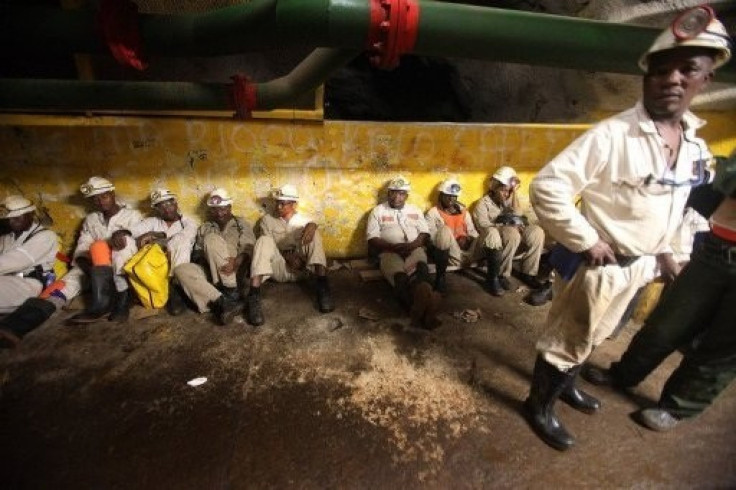South African Labor Unrest Threatens Platinum And Gold Production

In the wake of a strike that left 34 platinum miners dead after clashes with police, South African unions continue to refuse to work, disrupting production of the metal in the country that accounts for 75 percent of global exports and spilling over to gold mines.
Platinum production has fallen by 6 percent, or 380,000 ounces, during the year, according to an estimate by Deutsche Bank AG (NYSE: DB). In response, investors are buying platinum at the fastest rate since 2010, according to Bloomberg. Analysts polled by Bloomberg estimate an average platinum price of $1,625 per ounce in the fourth quarter, the highest in over a year.
The rival National Union of Mineworkers and Association of Mineworkers and Construction Union have clashed in turf wars, leading to labor shutdowns. Lonmin Plc (London: LMI), the world's third-largest platinum producer, has also been at the center of a fight for more wages. Workers are revolting against what they consider unacceptable working conditions and unlivable wages. Lonmin miners were seeking a basic wage of 12,500 rand ($1,500) per month, up from their current pay of 5,400 rand. Lonmin balked at the total cost of $30 million, more than its first-half profit of $18 million.
Impala Platinum Holdings Ltd. (PINK: IMPUY), the second-largest platinum producer, also experienced a strike in February at its Rusenberg mine.
"This may be the beginning of a ‘Miner Spring,'" Tony Healy, who studies South African labor law, told Reuters.
Platinum is used for catalytic convertors in cars, but demand may fall off if China's economy continues to slow.
The protests have spread to also spread to South African gold, with 12,000 workers of Gold Fields, the world's fourth-largest bullion producer, striking last week until Wednesday.
Shares of Lonmin were up 33.24 pence, or 6.28 percent, to 562.74 pence at Thursday's close. Impala Platinum was up 80 cents, or 5.40 percent, to $15.62 at Thursday's close.
© Copyright IBTimes 2024. All rights reserved.











